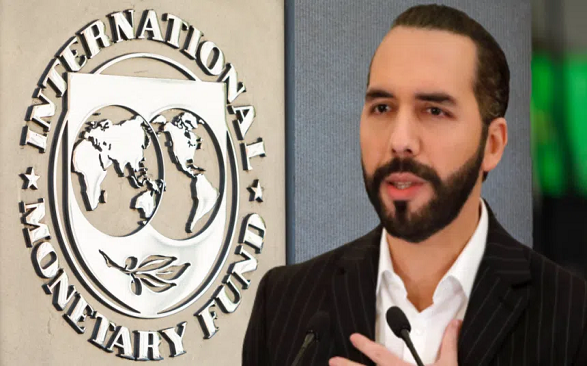In 2024, Nigerians showed more interest in stablecoins relative to bitcoin (BTC), and there is a resurgence in crypto trading on centralized exchanges over the past year, driven primarily by interest from Gen Z and Millennials. This latest data is according to The Nigeria Web3 Landscape Report 2024 published by Hashed Emergent.
Also, consistent with previous reports, Nigeria’s emergence as a global leader in crypto adoption in 2024 is reconfirmed by the Report, with the country ranking second worldwide and topping the charts in Africa.
No doubt, the lifting of the ban on cryptocurrency-related transactions in Nigeria’s banking and financial system by the Central Bank of Nigeria (CBN) in December 2023 must have also impacted on adoption rate in the year that followed.
Key Findings and Industry Reactions
- Crypto Trading Revival: After a decline between 2021 and 2023, crypto trading on centralized exchanges has picked up pace, with mature investors still dominating trading volumes.
- BTC/NGN Trading: The BTC/NGN pair has remained the most traded on centralized exchanges since 2019, driven by growing awareness among Nigerian youth, although trading volumes within this demography have been modest.
- Stablecoin Surge: The USDT/NGN pair has become one of the most actively traded pairs since 2024, as users seek to hedge against local currency volatility. Stablecoin transactions in Nigeria reached nearly $3 billion in transfer value during Q1 2024.
CAB spoke with a number of industry stakeholders, who shared their insights, regarding the developments reported above:
Crypto Trading Revival on Centralized Exchanges
Regarding the increased rate of crypto trading on centralized crypto exchanges in Nigeria, Suleiman Murunga, Director at Muda, attributes this growth to improved crypto regulation in the country. In his words, “Strong regulation is a key driver of adoption. So, I believe that because there is now better clarity in regulation, users are now coming on board.”
Murunga traced the blocker in previous years to the largely unfriendly and restrictive regulatory climate in the country, which resulted in lack of visibility as adoption largely went underground throughout the dark years: “Although people were still transacting in crypto, these transactions had gone under the table. Now that regulation has come, these transactions now happening above the table.”
“So the data had always been there but happening in silos, outside of the mainstream, with data more readily available”, Murunga said. He continued, hoping that the regulatory climate will get better across board so investor confidence can be boosted more significantly. “And so, we hope that there can be stronger regulation across board in order to improve clarity and give investors more confidence. This way, there will be more investments that can help grow the industry further.”
Eseoghene Onomor, CEO of Roqqu, speaking to CAB on the same development, remarked that globally exchange-traded funds (ETFs) have rekindled interest in the crypto industry, bringing improved trust and confidence to the industry: “We’re seeing improvements in trading volume, especially since the ETFs announcement in 2024, which rekindled global interest in the crypto industry with many major asset management firms launching their own Bitcoin ETF portfolios. I think that’s good for the industry overall as we move from the “wild wild west” approach to a more organized and regulated industry.
Apart from ETFs, Onomor also observed that there is a “significant shift” in the crypto assets investment landscape with alternative coins (altcoins) expanding investment options for investors. In his words, “Side by side this progress, we’re witnessing another significant shift happening, with hundreds of tokens now launched each day. There’s a broadening of the available crypto assets investors can now invest in. This is impacting the altcoins and tokens in particular because we’re not seeing strong consolidation around altcoins like we saw between 2017–2021.”
Onomor doesn’t think the shift above is altogether good news for the crypto industry on the long run: “In the long term, I think this is not such a good precedence as strong projects with good use cases are not getting the required funding and attention they need to keep building which is critical for this industry.”
On his part, Rume Ophi, a leading Crypto Analyst and Founder of Cryptopreacher Academy, noted that the gradual resurgence of crypto trading on centralized crypto exchanges signals a “bold statement” of improved confidence in the crypto landscape in Nigeria.
Speaking to CAB, Ophi said that “what has happened now is quite significant: People are finally beginning to regain confidence in the Nigerian crypto space. This is a bold statement—it signals that cryptocurrency is now legal in Nigeria.”
“Especially with the recent signing of the Investment and Securities Act (ISA) into law by the President, we expect the level of confidence to gradually improve in 2025 and beyond. While it may not be a perfect framework yet, it’s certainly a major improvement from the era when a former CBN governor labeled crypto as ‘money for criminals'”, Ophi said.
Read also: Introduction to Stablecoins: USDT, USDC, and BUSD
Increased Stablecoin-Naira Pair relative to Bitcoin-Naira Transactions
Regarding stablecoin adoption in Nigeria generally, Onomor observed that while stablecoins have been noticeably getting increasing interest from users, they have become very relevant in the crypto space.
Onomor said: “We’ve had them for some years now, but every day they become more and more relevant and in fact critical for this space. USDT (the digital dollar) has become the cornerstone—not just for Nigerians but for many other countries experiencing any form of inflation. I believe most people basically buy it as a way to store some value in dollar form.”
However, that’s not the whole story.
Onomor added that another dimension to the increased rate of stablecoin adoption, pointing out that they have also become a reliable means of payments for cross-border transactions: “But I’ve seen one other major use case which is becoming predominant”, he pointed out, “and that’s sending USDT to counter parties in places like China and Dubai for purpose of buying goods.”
So beyond crypto trading, “Nigerians are very well-known buyers in countries like China, and USDT is beginning to play an important role along those corridors,” he said. But why is this so? “It’s fast, liquid, and cheaper than conventional ways to move money. So, I think it’s a natural choice for people.”
Notably, it is worth mentioning here that, as reported by CAB recently, up to 90% of US dollar-backed stablecoins, and stablecoins generally, are dominated by professional flow. In other words, proprietary trading, market making, and liquidity rebalancing have been the major use cases of stablecoin transactions, not retail payments. Not only does this highlight the critical role stablecoins play in facilitating institutional investment and trading in the crypto market but also hints at what should primarily shape stablecoin regulation.
Also speaking to CAB regarding the volume of stablecoin-Naira pair transactions being higher than bitcoin-Naira pair transactions on centralized exchanges in 2024, Ophi is of the opinion that the relative high volatility of bitcoin is a significant factor. “It’s a function of bitcoin volatility. While volatility can be an opportunity, I think a large number of users or investors are not really people that are heavy on trade. You need stablecoins to be able to keep your head.”
From 2025, Ophi, from a global point of view, believes that the ongoing tariff wars will also impact significantly on the rate of stablecoin adoption, compared to bitcoin. Ophi asserted that while stablecoins bring stability, bitcoin brings volatility, and in the current global finance market, investors are seeking some level of stability in a market that is already volatile following the tariff wars and uncertain negotiations.” According to him, “Investors in the global finance market don’t want to take too much risk at this time. The idea that bitcoin price is volatile and consequently the price they bought can decline the next minute is a considerable risk.”
Ophi pointed out that investors want to protect their value first: “You buy bitcoin at XYZ price during breakfast and by lunchtime, the price is down by 2, 3, 4, or 5 percent. Investors say they don’t want to break their heads over that. This is one of the reasons I think stablecoins become quite relevant—one can gauge and decide if he or she is going to invest long-term or short-term, while staying liquid.”
Tak Lee, CEO and Managing Partner, Hashed Emergent, in his foreword to the report, himself confirmed that stablecoin adoption is one of the factors fuelling notable investments in Nigeria: “Sectors such as finance and infrastructure have experienced notable investment growth in the last two years, largely fueled by the rising adoption of stablecoins in the country.”
Read also: Stablecoins gain traction, threatening bitcoin’s dominance
Global and Regional Crypto Adoption Rankings
- Nigeria: $59 billion in cryptocurrencies and $24 billion in stablecoins received in 2024, leading Africa and ranking second globally.
- South Africa: $26 billion in cryptocurrencies and $12 billion in stablecoins received in 2024.
- Kenya: $8 billion in cryptocurrencies and $3 billion in stablecoins received in 2024.
- China: $46 billion in cryptocurrencies received in 2024. Data on stablecoin not available.
These findings confirm Nigeria’s position as a major player in the global crypto landscape, with a thriving ecosystem and growing interest in digital assets.
Emphasizing the importance of perception and why stakeholders, including regulators, need to pay more attention to this, Ophi pointed out the need to be more intentional about managing perception in the best interest of the nascent industry: “The reality is, the country is tough right now, and people deserve access to legitimate means of making a living. What the industry needs now is trust. With the right policies, the Nigerian crypto ecosystem can thrive again. Perception is everything. If the Nigerian government can reshape how it’s viewed—both by local and international players—it will spark a new wave of innovation and participation in the Web3 space.”
Read also: Major use cases of cryptocurrencies in Africa
Implications and Opportunities
First, one of the key findings of the report is the growing popularity of stablecoins in Nigeria. The USDT/NGN pair has become one of the most actively traded pairs on centralized exchanges, with stablecoin transactions reaching nearly $3 billion in transfer value during Q1 2024. This trend highlights the increasing demand for stablecoins as a means of hedging against local currency volatility and underscores the growing importance of stablecoins in the Nigerian crypto ecosystem.
Second, the Report mentions a resurgence of crypto trading on centralized exchanges in Nigeria in 2024. This may have been driven by several factors, including:
- Ease of Use: Centralized platforms are often more user-friendly and accessible, making it easier for new users to enter the market.
- Regulatory Developments: The easing of restrictions on cryptocurrency-related transactions in Nigeria’s banking and financial system in December 2023 may have contributed to the resurgence in crypto trading. This development may have likely allayed the fears of users regarding access to centralized crypto exchanges in the country. Quidax and Busha, for instance, who were granted provisional licenses by the Securities and Exchange Commission (SEC) in 2024, are expected to have benefited from the shift.
Generally, Nigeria’s emergence as a global leader in cryptocurrency adoption presents both opportunities and challenges. On the one hand, it highlights the country’s growing interest in digital assets and its potential to become a major player in the global crypto landscape. On the other hand, it also underscores the need for improved regulatory clarity and oversight to ensure that the industry operates in a safe and transparent manner.
Beyond Nigeria, Lee believes that the Africa web3 space holds promise—a promise that Hashed Emergent is invested in: “We are deeply invested in empowering the next generation of Africa’s web3 pioneers and accelerating the continent’s ascent as one of the global web3 leader.”
Read also: Introduction to Stablecoins: USDT, USDC, and BUSD
Conclusion
Nigeria’s growth in crypto adoption in 2024 is a significant development, highlighting the country’s growing interest in digital assets, including transacting on foreign-currency-pegged stablecoins. Considering the increasing rate of stablecoin adoption, it may benefit Nigeria if relevant risk-based regulations are introduced for stablecoins.
Therefore, the current regulatory enforcement actions in the country where USDT, USDC, and similar stablecoin transactions are treated as violation of the country’s Foreign Exchange Act need to be reconsidered. Nigeria cannot afford to repeat the mistakes of the past by putting up resistance rather than regulation. In view of the various legitimate use cases of stablecoins, Nigeria’s socio-economic realities, and being one of Africa’s most promising emerging markets, the stablecoin landscape is apparently a dynamic one, requiring a nuanced approach. Proactiveness is vital here.
Regarding centralized exchanges, Nigeria needs to accelerate the registration and licensing process. Considering that accelerating this process for crypto exchanges and for VASPs generally is the primary goal behind introducing the Accelerated Regulatory Incubation Program (ARIP) in June 2024, there is reasonable expectation that the registration and licensing process would be significantly streamlined. Relative to other jurisdictions, the present registration and licensing, which is chiefly administered by the Securities and Exchange Commission (SEC), will also benefit from acceleration. Also, under the present regulatory climate, industry players and investors expect that the blanket blacklisting of a number of crypto exchange sites in Nigeria’s cyberspace is overdue for review by the relevant agencies. Revisiting the blacklist will signal to stakeholders and the members of the local and international public that Nigeria is truly open and ready for business.
Generally, as the industry continues to evolve, it is vital that regulators, investors, and industry stakeholders work together to ensure that the ecosystem operates in a safe and transparent manner. With its thriving ecosystem and growing interest in digital assets, Nigeria is well-positioned to remain a major player in the global crypto landscape.
The Nigeria Web3 Landscape Report, the first of its kind in the country, is an initiative of Hashed Emergent. Hashed Emergent is the venture capital arm of Hashed, focused on supporting early-stage web3 startups in India and other emerging markets. The firm provides capital, strategic guidance, and access to a global network, driving ecosystem growth through targeted initiatives from key hubs like Bangalore, Seoul, Singapore, Lagos, and Dubai.
The Report was put together in collaboration with its knowledge partners: Convexity, Infusion Lawyers, Quidax, and Web3bridge. The full report is available here.
Read also: US Dollar Stablecoins hit $230 Billion, dominated by professional flow
Discover more from Crypto Asset Buyer
Subscribe to get the latest posts sent to your email.





